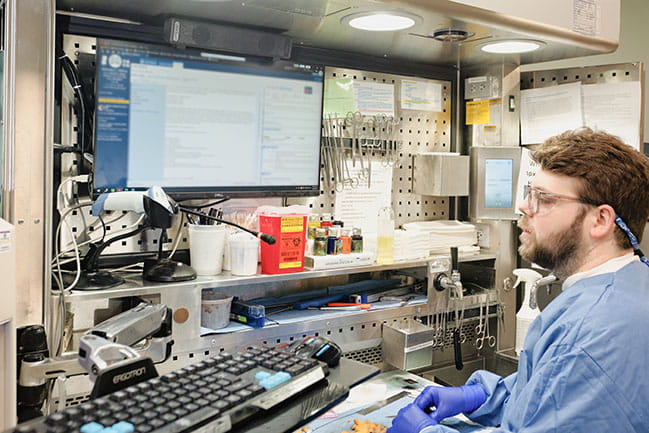Buy Pathologists' Assistant (PA(ASCP)) License Online

A Pathologists’ Assistant (PA(ASCP)) is a certified allied health professional who works under the supervision of a pathologist to prepare and examine human tissue and body fluids, but does not make the final diagnosis. They are responsible for grossing, dissecting, and documenting specimens for surgical pathology and performing autopsies, playing a vital role in disease diagnosis and patient care. The PA(ASCP) certification is awarded by the American Society for Clinical Pathology (ASCP) and demonstrates a high level of competency in the field.
Key Responsibilities
- Specimen Handling: Prepare, describe, and dissect human tissue and fluid specimens from surgical procedures.
- Autopsies: Perform post-mortem examinations and prepare specimens for autopsy.
- Documentation: Document findings, often writing reports to assist the pathologist in making a formal diagnosis.
- Laboratory Operations: Manage aspects of the surgical pathology suite and anatomic pathology services, including quality control, inventory, and accreditation preparation.
- Education & Supervision: Train pathology residents, other pathology lab personnel, and students.
Work Environment
Pathologists’ Assistants primarily work in: hospitals, pathology laboratories, and research facilities.
The Role of Certification (PA(ASCP))
- Demonstrates Competency:The PA(ASCP) certification signifies a high standard of skill and knowledge in the profession.
- Employer Requirement:Many employers prefer or require PA(ASCP) certification for employment and advancement.
- Standardized Training:Graduates from accredited PA programs are eligible to take the PA(ASCP) certification exam.
Key Skills
- Attention to Detail:Essential for accurately documenting microscopic findings and variations in tissue.
- Critical Thinking:Needed to problem-solve and determine the causes or solutions for observed sample differences.
- Communication Skills:Crucial for collaborating with pathologists, surgeons, and other healthcare professionals.
- Adherence to Procedures:Following precise protocols is vital for consistency and to avoid errors in autopsies and specimen handling.
